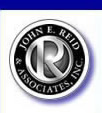| Since 1947 John E.
Reid and Associates has been conducting pre-employment interviews
of applicants applying for positions of public trust. In this one-day
training course we will share with you interviewing techniques
and strategies that will significantly enhance your ability to identify
high-risk applicants before they become problem employees.
IN THIS SEMINAR YOU WILL LEARN HOW TO
Recognize when an applicant is withholding relevant information.
Identify when a candidate has falsified information on the application.
Develop admissions of wrongdoing when the candidate initially tried
to conceal such information. Assess the overall integrity and trustworthiness
of the candidate. TOPICS COVERED
THE APPLICATION
 The Value of an Application Versus a Resume The Value of an Application Versus a Resume
 Elements of an Application Elements of an Application
 Analysis of an Application - Recognizing "Red Flags" Analysis of an Application - Recognizing "Red Flags"
ENCOURAGING CANDIDNESS
 Interviewer Characteristics Interviewer Characteristics
 The Arrangement of the Interview Room and Furniture The Arrangement of the Interview Room and Furniture
 The Type of Statements that Discourage Applicant Openness and Honesty The Type of Statements that Discourage Applicant Openness and Honesty
 The Opening Statement The Opening Statement
 The Transition Statement The Transition Statement
IDENTIFYING DECEPTION
 Preliminary Considerations Preliminary Considerations
 Behavioral Attitudes Behavioral Attitudes
 Verbal Behavioral Symptoms Verbal Behavioral Symptoms
 Nonverbal Behavior Symptoms Nonverbal Behavior Symptoms
 The Areas of Inquiry The Areas of Inquiry
UNCOVERING MORE INFORMATION
 Question Types Question Types
 Rules for Effective Question Design Rules for Effective Question Design
 Using Follow-Up and Clarification Questions to Develop Complete
and Honest Answers Using Follow-Up and Clarification Questions to Develop Complete
and Honest Answers
SPECIFIC AREAS OF INQUIRY
 Employment History Employment History
 Attendance Attendance
 Disciplinary Actions Disciplinary Actions
 Falsification of the Application Falsification of the Application
 Involvement in Criminal Behavior Involvement in Criminal Behavior
 Use of Illegal Drugs and Narcotics Use of Illegal Drugs and Narcotics
 Theft from Past Employers Theft from Past Employers
 Use of Excessive Physical Force Use of Excessive Physical Force
 Paying or Receiving of Bribes Paying or Receiving of Bribes
 Starting of Illegal Fires Starting of Illegal Fires
All of the topical information is supplemented by the use of videotapes
of real life candidate interviews. Each participant at the program
will receive a 100 page training manual and a certificate of completion.
QUESTIONING TECHNIQUE EXAMPLES
The following example of two interviewers questioning the same applicant
illustrates the value of proper question phraseology:
"Some interviewers develop much more information from an applicant
simply by the way they phrase their questions."
INTERVIEWER ONE
Interviewer: "I see from
your application that for the last several years you worked for
the ABC Company. Is that correct?"
Applicant (Jim Smith): "Yes,
that's right."
Interviewer: "I see that you
left that job because they wanted you to relocate. Can you tell
me a little bit about that?"
Applicant: "Well, they had asked
several employees to relocate to a new store that they opened up
about 75 miles away on the north side of town."
Interviewer: "And that was too
much of a commute for you to make every day?"
Applicant: "Yes, that's right."
INTERVIEWER TWO
Interviewer: "Jim, as I mentioned
earlier, I'd like to discuss your employment history with you. Obviously
we have both your resume and application, but I always like to discuss
a person's work history with them because people can always say
more during an interview than they can on an application. Okay?"
Applicant (Jim Smith): "Sure,
that would be fine."
Interviewer: "Are you working
anywhere at the present time?"
Applicant: "No."
Interviewer: "What was your most
recent job?"
Applicant: "I worked for the
ABC Company as an assistant manager at their Main Street location."
Interviewer: "Why did you leave
that job?"
Applicant: "Well, I got into
an argument with my boss and one thing led to another and it was
basically a mutual thing but he asked me to leave." Interviewer:
"Did he say why he wanted you to leave?"
Applicant: "Not really. I mean
he said that some of the employees wanted to work at another store
location because of the way that I treated them, but, I don't know.
I just know he said he had too many complaints about me from some
of the staff."
Interviewer: "Did he say what
kind of complaints he was receiving?"
Applicant: "Not exactly. Well,
I guess some of them were about the fact that I yelled at them in
front of customers about their screw-ups. But my job was to make
sure everyone did what I wanted them to do, and if they couldn't
do it then I let them know about it in no uncertain terms." The above illustrates one of the most important strategies to employ
in the interview of a potential new employee - do not feed back
to the applicant the information that they provided on their application.
Instead, interview the applicant as though you know nothing about
them and let them provide the information. You will be amazed at
what you will learn. The Hiring the Best course is only presented in-house or as a
co-sponsored training program. We will provide the course materials
and certificates. As the course host, your only obligation is to
provide a meeting room that is suitable for the training and the
audiovisual equipment. This program can be customized to meet your
particular needs.
If you are interested in discussing the feasibility of bringing this training program to your location, just contact Julie Rock at 855-479-3959.
|



